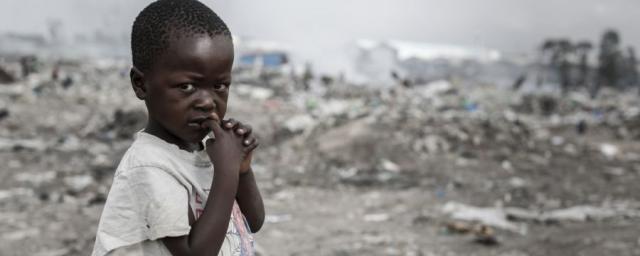
Tax havens fuel inequality and hold back the fight against poverty. This simply has to stop.
Since 2014, a huge number of documents have revealed how powerful corporations and super-rich individuals are exploiting a rigged global system that allows them to avoid paying their fair share of tax. And it’s the world’s poorest people who pay the price.
Our world is not short of wealth. The size of the global economy has almost quintupled over the past 30 years. In 2017, its value reached nearly $78 trillion.
Yet, the gap between rich and poor gets wider, with a massive increase in wealth at the top, while the total wealth owned by those at the bottom is falling. Since 2015, the richest 1% have more wealth than the rest of the world combined.
Such extreme economic inequality is being fueled by an epidemic of tax evasion and avoidance that has reached an unprecedented scale. While millions across the world live in poverty, rich individuals and companies, exploiting the secrecy provided by tax havens, are continuing to dodge their taxes, depriving the poorest countries from being able to provide vital services.
The secret industry of tax evasion
Since 2014, a huge number of documents – including the Panama Papers and the Paradise Papers scandals – have been leaked by the International Consortium of Investigative Journalists (ICIJ) unveiling how tax evasion and avoidance have become standard business practice across the globe.
Through a complex and loosely regulated tax system, multinational companies and rich individuals actively seek to increase their profits by storing them offshore and avoiding paying taxes in their countries.
Tax havens are at the heart of this system. They allow massive amounts of wealth to flow untaxed and in secret, out of reach from tax authorities and regulators.
The winners: big corporations and super-rich people
The big winners are those at the top, the wealthy individuals and multinational companies who use their position and influence to capture economic gain for themselves and use economic structures to their benefit.
Those who should be paying the most tax instead maximize their profits in part by paying as little tax as possible. They do this by using tax havens or by making countries compete to provide tax breaks, exemptions and lower rates. And while some of the tax dodging practices are illegal, many exploit weaknesses in today’s tax system – without breaking any laws.
- 9 out of 10 of the world’s top 200 companies have a presence in tax havens while corporate investment in tax havens quadrupled between 2001 and 2014.
- The 50 biggest US companies stashed $1.6 trillion offshore in 2015, while Europe’s 20 biggest banks are registering over a quarter of their profits in tax havens - an estimated €25 billion in 2015.
- As revealed by the Panama and Paradise Papers, many wealthy individuals from across the globe, including famous celebrities and prominent politicians, are using tax havens to avoid or evade paying taxes on their fortunes.

Tondo slum in Manila, Philippines, 2014. Tax havens cost poor countries at least $100 billion in lost tax revenues each year.
The losers: ordinary people and poor countries
When rich individuals or multinational corporations stash their wealth in tax havens, they can dodge paying their taxes in the countries where they do business and where they make their money. By doing so they deprive governments of the resources they need to provide vital public services and infrastructure like schools, hospitals and roads, and to tackle poverty and inequality.
Governments either have to cut back on these services, or make up the shortfall by collecting higher taxes from everyone else. Both options see the poorest people lose out and the inequality gap grow. This global system of tax avoidance is sucking the life out of welfare states in the rich world.
But the impact is even more devastating on poorer countries:
- Corporate tax dodging costs poor countries at least $100 billion every year. This is enough money to provide an education for 124 million children and prevent the deaths of almost eight million mothers, babies and children a year.
- Africa alone loses $14 billion in tax revenues due to the super-rich using tax havens. This is enough money to pay for healthcare to save the lives of 4 million children and to employ enough teachers to get every African child into school.
Join the fight against inequality
When it comes to paying tax, there is one rule for the super-rich and big companies and another for ordinary people. While the most powerful get away with paying little or nothing, ordinary citizens are left to foot the bill for government spending.
If we are going to end extreme inequality, we must call on world leaders to end the era of tax havens and put a stop to the secrecy that enables rich individuals and international companies to avoid paying their fair share of taxes.
Governments need to lead, but everyone must make it their business to fight poverty.